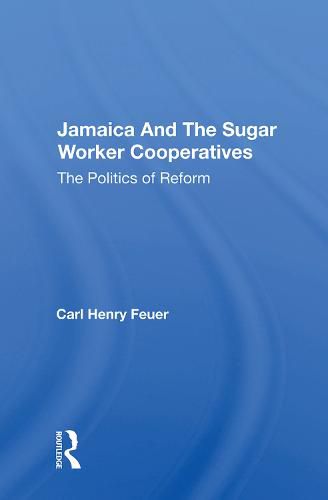Readings Newsletter
Become a Readings Member to make your shopping experience even easier.
Sign in or sign up for free!
You’re not far away from qualifying for FREE standard shipping within Australia
You’ve qualified for FREE standard shipping within Australia
The cart is loading…






Between 1974 and 1977, as part of a wider attempt by Prime Minister Michael Manley’s regime to carry out a democratic reformist strategy of development, the three largest sugar estates in Jamaica were converted into worker-managed farms. Within a few years, however, the cooperative program was in disarray as the farms faced economic setbacks and as political conflicts developed among the sugar workers, local authorities, and the government. Drawing on his extensive field research in Jamaica, Dr. Feuer traces the development and decline of the cooperative system and discusses the implications for the possibility of democratic reform. In his view, the logic of the cooperativization process conflicted with the priorities of the middle class, which continued to dominate the Jamaican economy. As a result, the reforms were never firmly rooted in a political coalition with the resources to carry them out. In light of the Jamaican experience, Dr. Feuer considers such questions as: What are the obstacles a nonrevolutionary regime is likely to face in an effort to help the poor? How feasible is it to mobilize the requisite political and administrative resources and neutralize the inherent constraints to reform?
$9.00 standard shipping within Australia
FREE standard shipping within Australia for orders over $100.00
Express & International shipping calculated at checkout
Stock availability can be subject to change without notice. We recommend calling the shop or contacting our online team to check availability of low stock items. Please see our Shopping Online page for more details.
Between 1974 and 1977, as part of a wider attempt by Prime Minister Michael Manley’s regime to carry out a democratic reformist strategy of development, the three largest sugar estates in Jamaica were converted into worker-managed farms. Within a few years, however, the cooperative program was in disarray as the farms faced economic setbacks and as political conflicts developed among the sugar workers, local authorities, and the government. Drawing on his extensive field research in Jamaica, Dr. Feuer traces the development and decline of the cooperative system and discusses the implications for the possibility of democratic reform. In his view, the logic of the cooperativization process conflicted with the priorities of the middle class, which continued to dominate the Jamaican economy. As a result, the reforms were never firmly rooted in a political coalition with the resources to carry them out. In light of the Jamaican experience, Dr. Feuer considers such questions as: What are the obstacles a nonrevolutionary regime is likely to face in an effort to help the poor? How feasible is it to mobilize the requisite political and administrative resources and neutralize the inherent constraints to reform?